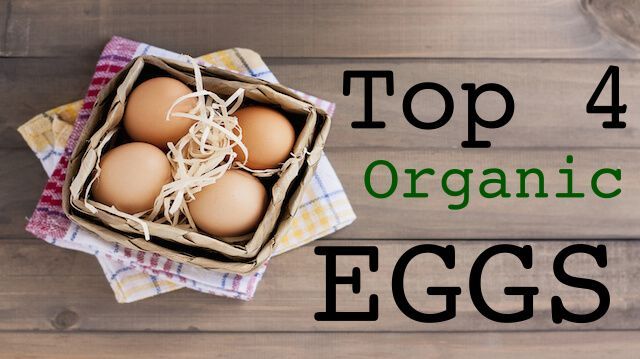
Not just for breakfast, eggs make a wonderful meal addition — or main course! — at any time of day. What’s better than an omelet or frittata for lunch, loaded with your favorite veggies? Of course, in order to make the best egg dishes possible, you’re going to need to start with the best eggs!
Eggs are nutrient-rich superfoods. Not only do they contain all nine essential amino acids, they also contain vitamin A, a range of B-vitamins, vitamin D, and vitamin. E. They are abundant in minerals and have been shown to help raise the body’s levels of HDL “good cholesterol.”
Conventionally-raised eggs, however, come from some pretty abhorrent conditions. Sometimes, hens are placed in stacked wire cages, where they barely have any room to move around at all, and some never see the light of day. Their water and food is often soiled with manure, which raises their risk of harboring salmonella and other bacteria. On top of that, they are often fed GMO grains — not at all their natural diet.
Organic eggs from pastured, free-range hens, on the other hand, are superior in both ethical practice and nutrition. Eggs from these hens, which are allowed to roam around and dig for worms and insects, often have more vitamin E, as well as more omega-3 fatty acids.
Since labels on supermarket eggs, such as “free-range” and “cage-free,” can be misleading (they do not guarantee how much space or outdoor time the hens actually have), choosing the right eggs can be tricky. The following are our four favorite types of organic eggs:
Eat Wild
 Eat Wild is an initiative dedicated to connecting consumers with local, pastured products. If you visit their website, you can choose your region on a map, and you will be provided with a list of local farms that offer organic eggs from (truly) free-range, pastured chickens.
Eat Wild is an initiative dedicated to connecting consumers with local, pastured products. If you visit their website, you can choose your region on a map, and you will be provided with a list of local farms that offer organic eggs from (truly) free-range, pastured chickens.
Mission Mountain Organic Farm
These eggs hail from a family farm, and hens are given ample space — over 1,000 square feet! — to roam around on pasture and forage for insects, which is their natural diet, in the grasses of the Mission Mountains, Montana. The eggs are all certified 100-percent organic.
Mosel Eggs
The hens on Mosel Farm have access to 800 square feet of space per bird in Page, Nebraska. The henhouses have ample lighting, and the hens are provided with perches, dust baths, and scratching areas — all natural practices for hens.
Vital Farms Organic Eggs
These eggs are certified 100-percent organic, and their supplemental feed (which is given on top of their pasture diet) is certified non-GMO. The hens that lay the eggs have access to at least 108 square feet of pasture per bird — plenty of room for pecking and roaming.
As a side note, you’ll know a truly healthy egg by the darker orange color of its yolk. The lighter yellow ones are often not the real deal.
Of course, you can always raise your own chickens… this way you know for sure where your eggs are coming from!
— The Alternative Daily
Sources:
http://www.eatwild.com/products/michigan.html
http://www.cornucopia.org/organic-egg-scorecard/egg_profiles/FarmID_14.html
http://www.foodrenegade.com/healthy-eggs-what-to-buy
http://americannutritionassociation.org/newsletter/organic-egg-scorecard
http://www.sciencedirect.com/science/article/pii/S0308814611006248
http://www.thealternativedaily.com/can-eating-eggs-lower-diabetes-risk
http://eating-made-easy.com/3-egg-brands-can-trust-2

